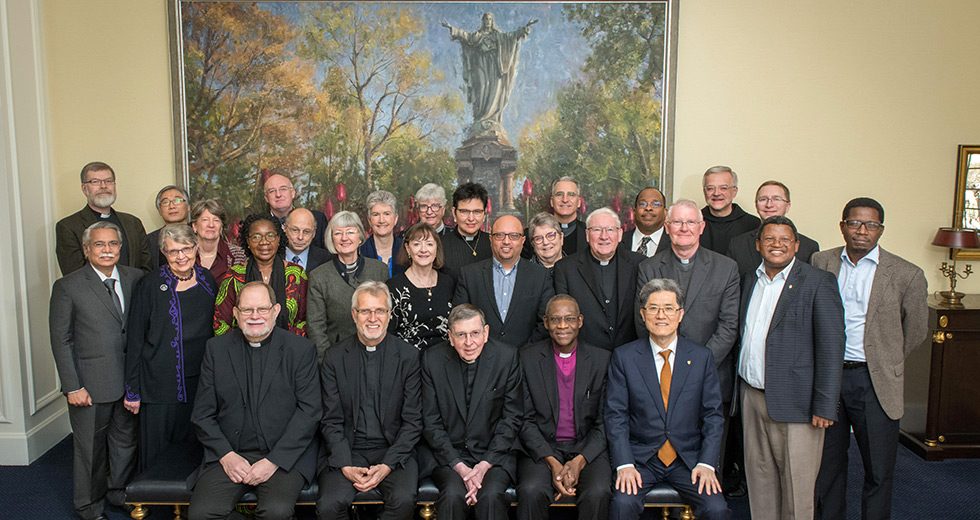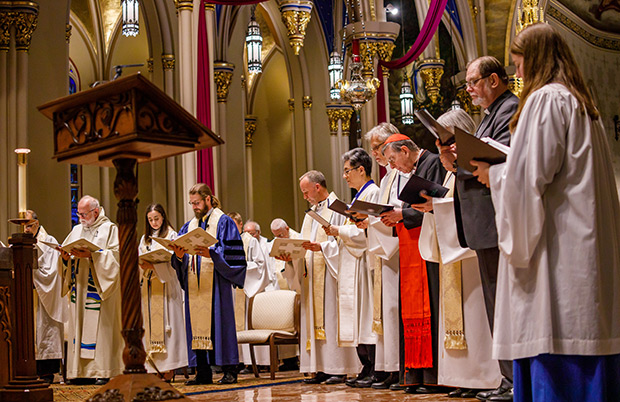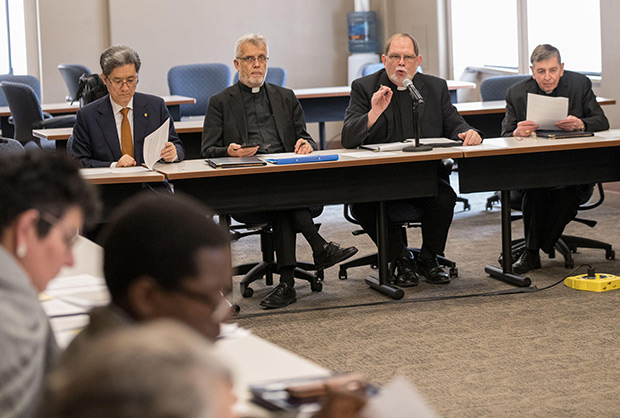JDDJ signatories look toward common future
Posted on April 1, 2019 by Phil Tanis

The five signatories of the Joint Declaration on the Doctrine of Justification (JDDJ) looked toward a future “realizing a deeper communion towards the full visible unity of the church and to make manifest the growth in communion which we have already been experiencing.”
“In a broken, violent and fearful world, it is urgent that the church bear witness to the possibility of unity and reconciliation and manifest the courage to stand together in works of proclamation, justice and compassion,” said Anna Case-Winters, a member of the World Communion of Reformed Churches (WCRC) delegation to a consultation of the JDDJ communions, held 26-28 March 2019 on the campus of Notre Dame University (Indiana, USA).
Originally signed by leaders of the Catholic Church and the Lutheran World Federation (LWF), the JDDJ has since been broadened to include the World Methodist Council, the Anglican Communion and the WCRC, all of which agree on the core message of salvation in and through Christ.

“It is a landmark gathering in the sense that the five communions have agreed to work together especially in activities that bring them together and promote unity in the midst of the divided, broken world with so many injustices and the degradation of all God’s creation,” said Peggy Kabonde, a member of the WCRC’s delegation.
In a concluding statement, participants highlighted the way in which the JDDJ process led to the overcoming of centuries-old controversies. They also noted how its method of differentiating consensus, which allows for core agreement while maintaining different confessional expressions, can be used to deal with past, present and future obstacles relating to both doctrinal and ethical questions.
“We are united in common witness to the God of life so that we can embrace difference and disagreements without allowing them to divide us,” said Chris Ferguson, WCRC general secretary. “This is possible because of the common affirmation that it is God alone who effects the gift of salvation and the justice which is in and through it!”

The participants agreed to establish a steering committee “to take forward the momentum generated by our meeting through promoting and monitoring the process of developing relationships among the adherents of JDDJ.”
There are also plans to “develop a range of catechetical tools and resources, in various forms, written and visual, including a dedicated common webpage, to be used in all aspects of church life and theological education.”
“We are in a new way a global koinonia of common witness to the liberating power of God’s grace in a world fallen among thieves,” said Ferguson. “God’s saving work touches all of creation and all people so that unity and justice are inseparable.”
“The JDDJ has formed the basis of a new orientation to one another. We no longer begin from the place of division, but of unity,” said Case-Winters. “We no longer look for what is lacking in one another but rather look for the distinctive gifts we each bring.”
(Thanks to the LWF for their contributions to this article.
Images by Steve Toepp and Peter Ringenberg/University of Notre Dame.)
 World Communion of Reformed Churches
World Communion of Reformed Churches